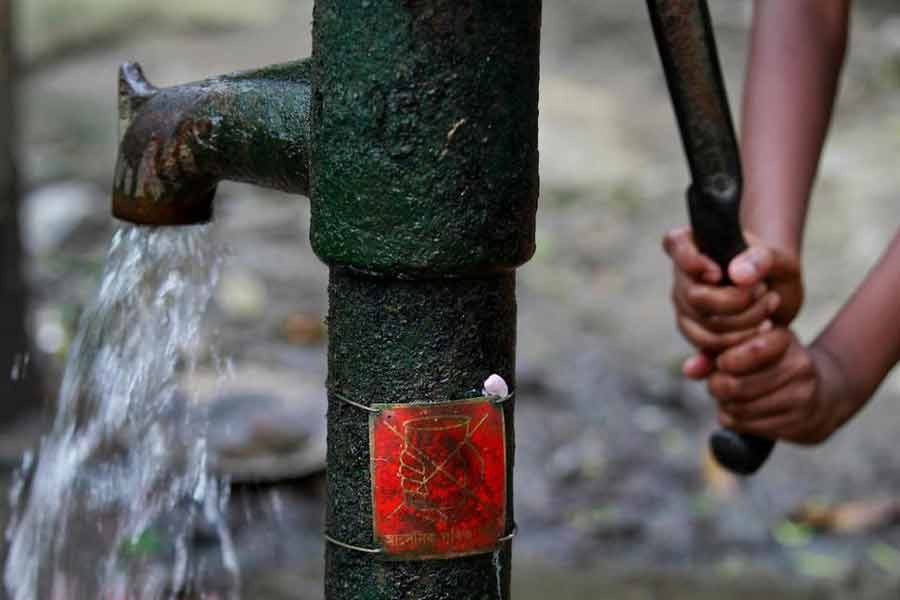Arsenic poisoning from ground water in Bangladesh has long been posing a massive threat to public health.
About 20 million people are exposed to harmful levels of the chemical element in their drinking water — over 50 parts per billion by national standards — and the figure is several times higher if measured by more stringent World Health Organization standards.
Arsenic poisoning is often fatal, linked to increased rates of cancer and other disease. For most of the victims, and millions more yet to be born, there is no end in sight, despite major remedial efforts.
With the well-being of so many people at stake, it is time to chart a faster route forward, based on a comprehensive and critical look at ongoing efforts to tackle the problem.
About two decades ago, the government embarked on a large-scale effort to test shallow household wells for arsenic, a geologically occurring contaminant. The spouts of hand pumps for wells deemed safe were painted green, and those not, red.
Households were encouraged to drink only from the green wells. Research showed that up to five years later, as many as half of the households reached were drinking only from safe wells.
More recently, the government has shifted to a strategy of introducing piped water from deep public tubewells and other safe sources, making it easier for households to access them, according to Devex, a media platform for the global development community.
Implementation has proved disappointing, however. At the current annual rate of progress, according to our analysis, it will take more than 100 years to reach all of the most vulnerable people.
One promising technical solution is to spread the use of household filters, which enable people to rely on their own tubewells and avoid fetching water from distant sources. Costing about $40, filters could be made widely available through subsidies.


